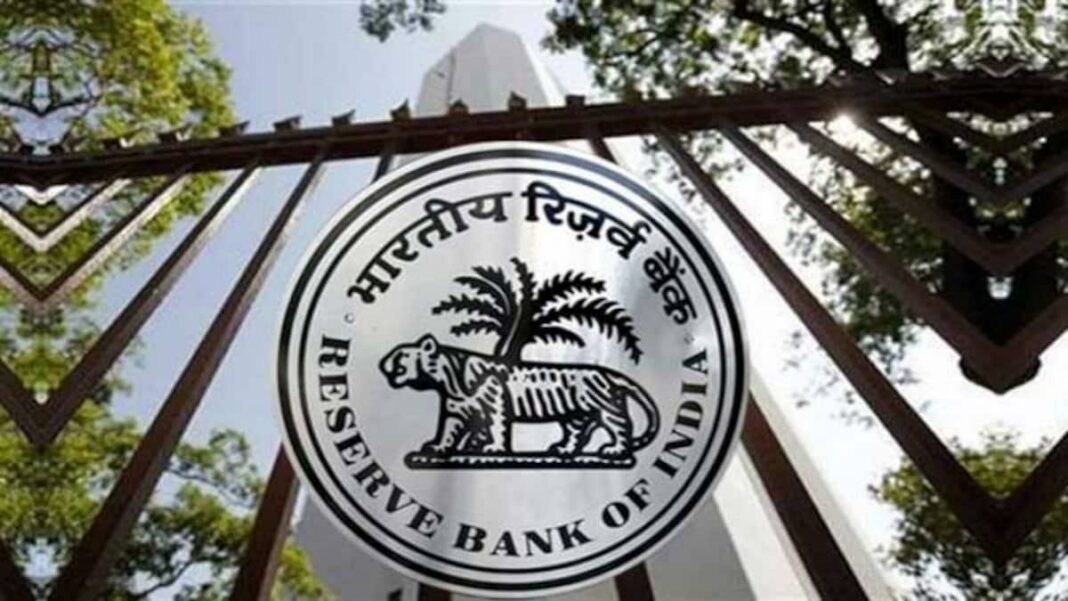News
RBI keeps Repo Rate unchanged, 4% inflation target


The Reserve Bank of India on Thursday, left the repo rate unchanged at 6.50%, which is in line with the market expectations. The apex bank retained its policy stance of focussing on “withdrawal of accommodation”.
The repo rate is the rate at which RBI lends money to the commercial banks. The loans given by banks are mostly directly or indirectly linked to the repo rate. Any change in repo rate, thus impacts the EMIs paid by the borrowers.
Analysts believe that demand being strong, the outlook for the real estate market is favourable. Here are excerpts of some of the industry bigwigs:
Manoj Gaur, President CREDAI NCR and CMD Gaurs Group


“The decision by the RBI to maintain the status quo on the repo rate is welcome news. This would surely be a relief for the real estate sector which is seeing a great upturn in the last 5-6 months. This upswing would surely be maintained with this measure. However, we look forward to lowering of the repo rate in the months to come which will boost the real estate sector and as well as the country’s economy.
Nayan Raheja, Raheja Developers


In the luxury realty sphere, where our group has significant exposure, the present interest rate has not caused a dent in the overall housing sale. Having said that, I welcome the RBI’s decision to maintain the status quo on interest rates. The transformation we are looking at is the result of keeping the interest rate at its highest in the last few years. For one, it should propel GDP growth and control inflation, ultimately benefiting the country and the real estate sector.
Amit Modi Director County Group and President CREDAI Western UP


After six straight hikes, the RBI has pressed the pause button, and we welcome this decision to keep the repo rate unchanged. However, we must also understand that at 6.5%, the repo rate is still the highest in four years. Even though the real estate sector, especially the premium and luxury segments, is comfortable with this number, to an extent, it has acted as a dampener in the case of affordable housing. We hope that the RBI lowers the repo in the next meet.
Anurag Mathur, CEO, Savills India


With inflation inside the tolerance zone for the second consecutive month, the RBI has continued to press the pause button with respect to benchmark lending rates. The repo rate remains unchanged at 6.5%, much like the withdrawal of accommodation stance. Moreover, as home loan EMIs will remain unchanged in the near-term, residential real estate should witness sustained demand across categories. Developers with debts on their balance sheets stand to benefit as long as the monetary policy finely balances inflation and growth prospects.
Anshuman Magazine, Chairman & CEO – India, South-East Asia, Middle East & Africa, CBRE


The continuation of the status quo on the monetary policy, after a substantial decline in inflation in April, signals sustained support for growth amidst a persistent need for caution. The RBI has taken a balanced approach to containing inflation and managing external volatilities. Given this scenario, we can expect the tightening cycle to be nearing its end, which would boost private capex demand and support domestic consumption.
Dhruv Agarwala, Group CEO, Housing.com, PropTiger.com & Makaan.com


In line with industry expectations, the RBI has maintained a status quo on its benchmark lending rate. With this, the repo rate will be maintained at 6.5%. This augurs particularly well for the real estate sector in the country. Amid all growth indicators moving in the right direction, the consumer spirit would get a renewed boost from the RBI move, which means home loan interest rates would remain at the current level.
Ankush Kaul, Chief Business Office, Ambience Group


In the realm of economic stabilty, the RBI stands firm. The decision to maintain an unfliching stance is reached, by holding the repo rate at 06.5%. The RBI’s resolute commitment to balance and prudent measures safeguards the nation’s financial course, steering us towards a resilient future. With the clear intention to safeguard the economy from any adverse implication out of the ongoing global financial turmoil. India’s economy continues to show resilience and looks promising despite the disruptions. The encouraging growth in the consumption pattern will continue to have a positive rub off on the home loan demand aided by consumer sentiments.
Rajan Bandelkar, National President, NAREDCO


The RBI repo rate announcement followed the expected pattern focusing on economic growth. The stable economy has meant that the buyers’ confidence is back in real estate, and the performance of the sector has improved over the past two years due to the decisions taken by the government and the RBI. The continuation of an accommodating stance speaks well for the emergence of a strong economy as the economy emerges from its extended restoration path. Nonetheless, the sector needed announcements that could further fuel the growth.
Dr Niranjan Hiranandani -National Vice Chairman –NAREDCO


India Inc hails accommodative stance of RBI with recurrent pause in repo rate hike at 6.50% as record high inflation eases off gradually. As a snowball effect, respite in homeloan interest rate will augur well to fuel uptick in housing sales across the segments. Now, the discerning homebuyers should avail the benefits of cooling inflation, stable home loan rates, conducive real estate market dynamics in the backdrop of buoyancy in GDP growth, domestic demand and availability of sufficient liquidity. With the festive season in tailwinds, a hiatus in interest rate hike will act as a growth catalyst and boost sales velocity.
Ashish Narain Agarwal, Founder and CEO, Property Pistol.com


The Reserve Bank of India has paused the repo rates at 6.5% in June meeting after its May meeting. This can be termed as a primary action to adjust the inflation while supporting the economy and growth.
The real estate sector that has been riding on the growth momentum since 2022 will observe more business since it will now bring respite to the homebuyers. Moreover, the real estate sector is currently conducive with good projects, favourable market conditions and upcoming festive season
Rajesh K Saraf, Managing Director, Axiom Landbase


We must understand that real estate does not work in isolation and is dependent on the success of all other sectors and companies. The RBI’s stance will help strengthen the economy and provide a favorable environment for the real estate sector.
Kushagr Ansal, Director Ansal Housing


This move for the second time is immensely encouraging for the real estate sectors, as it currently alleviates concerns about an additional financial burden on developers and buyers.
Ashwani Kumar, Pyramid Infratech


The Reserve Bank of India (RBI) has made a favorable choice by opting not to raise the repo rate for the second time. This decision is commendable as it will strengthen the interest of homebuyers in the affordable and mid-segment categories, despite the ongoing strong demand. While the previous rate hikes have not had a negative impact on demand, today’s decision will provide an additional boost to the real estate sector, which serves as a crucial driver of economic growth.
Ankit Kansal, Managing Director, 360 Realtors


RBI has kept the repo rate unchanged on a strong footing with a 7% expected GDP growth rate in 2023. Business activities are rising and financial institutions look upbeat. However, the downside risk emanating from volatility in international financial markets and rising geopolitical tensions can’t be completely negated. Amidst such a contradictory environment it is a good step to further analyze and evaluate the situation rather than fastening things.
Rajjath Goel, Managing Director, MRG Group


The decision not to increase the repo rate after six straight hikes has had an embalming effect on the real estate sector. Even if the RBI continues to maintain the repo rate at the present 6.5%, it will spur the sector’s growth. However, inflation at 5.1% is still a cause of concern as it is reducing the disposable income at hand and affecting investments in real estate. We hope RBI’s efforts will bring it down to 4%.
LC Mittal, Director Motia Group


The decision to keep repo rates stable benefits markets through keeping rate stability and a neutral mindsets. But there are still some problems within the real estate sector that must be solved. As the sector makes rapid progress in meeting demand with high-quality supply, the value of real estate as an asset will continue to rise and strengthen over time.
Sanjay Sharma, Director, SKA Group


Repo rates were left unchanged; the policy is extremely good for the markets by keeping rates constant and maintaining an accommodative stance. However, there are still some challenges in the real estate market that must be addressed. The value of the real estate as an asset will continue to grow and strengthen with time as the sector is moving rapidly towards meeting the demand with quality supply.
Vikas Bhasin, Managing Director, Saya Group


We welcome this decision by RBI. The repo rate at 6.5% is already at its highest in the last four years, the EMIs are high, and the developers still have to pay high-interest rates on the project finances. Still, the fact that the RBI decided to keep it unchanged has signalled a change in outlook. It will boost investors’ confidence and propel the sector’s growth, and given the NCR’s optimistic real estate scenario, boost investment in premium and luxury projects.
Radheecka Rakesh Garg, Director, Rajdarbar Realty


This is good news. RBI’s decision to leave the repo rate unchanged, along with the projected GDP growth rate of 6.5% in FY, as estimated by the RBI, will foster residential and commercial development in the country. However, the inflation, expected to hover around 5% in FY24, is a cause for concern. Even though the impact on the premium and luxury segments will be negligible, it will affect the price-sensitive affordable segment, especially in tier 2 and 3 cities.
Sudhanshu Rai, Director, Ocean Infraheights


Repo rate stability by the RBI is a calculated strategy to strike a balance between inflation and growth. Rate stability helps the real estate industry while guaranteeing that inflation is kept under control. This strategy helps maintain affordability, which is essential for a long-term real estate market and would prevent an unexpected price increase. The RBI’s decision favours the real estate industry by fostering growth, fostering a positive investment environment, and preserving a balance between inflation and affordability.
Pankaj Jain, Director, KW Group


RBI’s decision not to increase the repo rate is a good move because stability in the interest rate will boost the market sentiments. However, lowering the rate after 5 to 6 consecutive increases would have been ideal for the sector’s growth. The decision to maintain the rates would allow the buyers to invest in real estate without any further hikes in loan interest rates.
Ajendra Singh, VP- Sales and Marketing Spectrum Metro
The RBI’s decision to steady repo rates is a strategic move to balance growth and inflation. Keeping the rates unchanged stimulates the real estate sector while ensuring inflation remains in check. This approach would prevent a sudden price surge and helps maintain affordability, which is crucial for a sustainable real estate market. The decision by the RBI benefits the real estate sector by providing a favourable investment environment, encouraging growth, and maintaining a balance between inflation and affordability.
Ashwinder R Singh, CEO Residential, Bhartiya Urban


The Reserve Bank of India (RBI) kept the repo rate unchanged at 6.5%, a decision that is likely to come as a relief to the real estate sector. The sector was facing slight headwinds in recent months due to rising interest rates, which had made it more expensive for homebuyers to borrow money. The RBI’s decision to keep interest rates stable is likely to boost demand for homes. The decision will help to support economic growth. A strong real estate sector can help to drive economic growth by creating jobs and stimulating investment. By keeping interest rates stable, the RBI is helping to create an environment that is conducive to economic growth.
-



 News3 weeks ago
News3 weeks agoKW Delhi 6 Mall Onboards New Brands
-



 News4 weeks ago
News4 weeks agoManasum Senior Living Launches IKIGAI GOA, A Senior Living Community in North Goa, in collaboration with Prescon Homes
-



 News3 weeks ago
News3 weeks agoGodrej Properties Sells Rs 3k cr+ Homes of Godrej Zenith, Gurugram, within 3 days
-



 News3 weeks ago
News3 weeks agoCommercial Realty Gets Tech Savvy: Fast Construction, Enhanced Convenience
-



 News4 weeks ago
News4 weeks agoBridging India Divide: Top 5 Tier- 2 Cities to Focus On
-



 News4 weeks ago
News4 weeks agoMultipoint Connection – A Definite Boon
-



 News3 weeks ago
News3 weeks agoRBI’s Status Quo on Key Policy Rates to Help Maintain the Real Estate Growth Momentum, Say Industry Stalwarts
-



 News1 week ago
News1 week agoOlive Announces Dhruv Kalro as Co-Founder

















